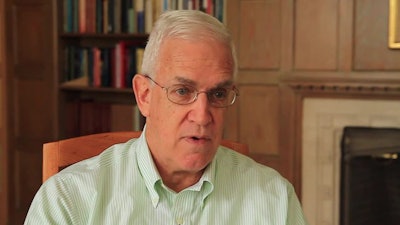 Dr. Ronald G. Ehrenberg said that schools were not immune to making hiring choices based on economic factors.
Dr. Ronald G. Ehrenberg said that schools were not immune to making hiring choices based on economic factors.Back in the day, entering the professoriate was one path to a stable life, professionally speaking. Tenure made jobs lifelong. Yet those halcyon days when the promise of a job for life was not so unthinkable have slipped away at universities, just as it has in many other sectors in the contemporary era.
Colleges and universities now rely on non-tenure-track faculty to fill their professorial ranks. According to the American Association of University Professors (AAUP), approximately 3 out of 4 instructional staff are non-tenure track, and more than 50 percent hold part-time appointments.
For the most part, contingent or adjunct faculty inspire the most sympathy. There might be said to be two types of contingent faculty: those who have an established career and have the time to teach a class or two on top of that. Then there those who want to be professors but can see no other path to that goal other than to take on part-time work.
The financial outlook is not good for those who are reliant on an adjunct salary. Although there is no source that offers an exact approximation of the average salary of an adjunct professor, websites such as the Chronicle’s Adjunct Project show that most adjuncts can expect to earn from $700 to $3,000 per course. Some estimates put the average adjunct salary at less than $25,000.
In addition to low pay, adjuncts have limited job security, since their contracts may only extend the length of one semester. They may piece together a number of jobs at different institutions in the pursuit of a wage they can subsist on, spending their days and weeks shuttling between schools. The itinerant lifestyle of some adjuncts is chronicled in places such as the Adjunct Commuter Weekly, a magazine dedicated to adjuncts who crisscross state lines to get from one job to the next.
A new study from the National Bureau for Economic Research, Changing Faculty Employment at Four-Year Colleges and Universities in the United States, sheds a little more light on the current composition of faculty. Dr. Ronald G. Ehrenberg, Irving M. Ives Professor of Industrial and Labor Relations and Economics at Cornell University and one of the authors of the study, highlighted the emerging role of non-tenure-track full-time faculty.
“It’s true that the share of tenure track and tenured faculty nationwide continues to go down, but more and more of these institutions are hiring full-time, non-tenure track people often with the expectation that there’s going to be a fairly permanent relationship, if they perform well with the institution,” Ehrenberg said.
When hiring a full-time, non-tenure-track faculty member, colleges and universities might now consider individuals with unique skill sets, but who do not necessarily have a Ph.D., Ehrenberg said. He added, “These [types of hires] would be prominent political figures, prominent artists, or creative writers or engineers who have been working in the industry, who can convey the type of material which faculty with more academic type of backgrounds cannot.”
One of the questions that arises from the study is whether current trends will continue to “erode” tenure, eventually leading to the end of tenure as we know it, or whether the composition of tenure to non-tenure-track faculty had reached an equilibrium. Ehrenberg said that it is still not clear what the end result will be, but that schools were certainly not immune to making hiring choices based on economic factors. If adjunct unionization efforts, for example, become more widespread and successful, that may push schools to consider the benefits of a more permanent, but non-tenured class of faculty.
“The unionization efforts of adjuncts will help aid this trend because as adjuncts become more expensive, to the extent that the unionization is successful, the institutions will begin to think more about the notion of the benefits of full-time instructional faculty who are not on tenure tracks, rather than adjuncts,” Ehrenberg concluded.
Staff writer Catherine Morris can be reached at [email protected].





















